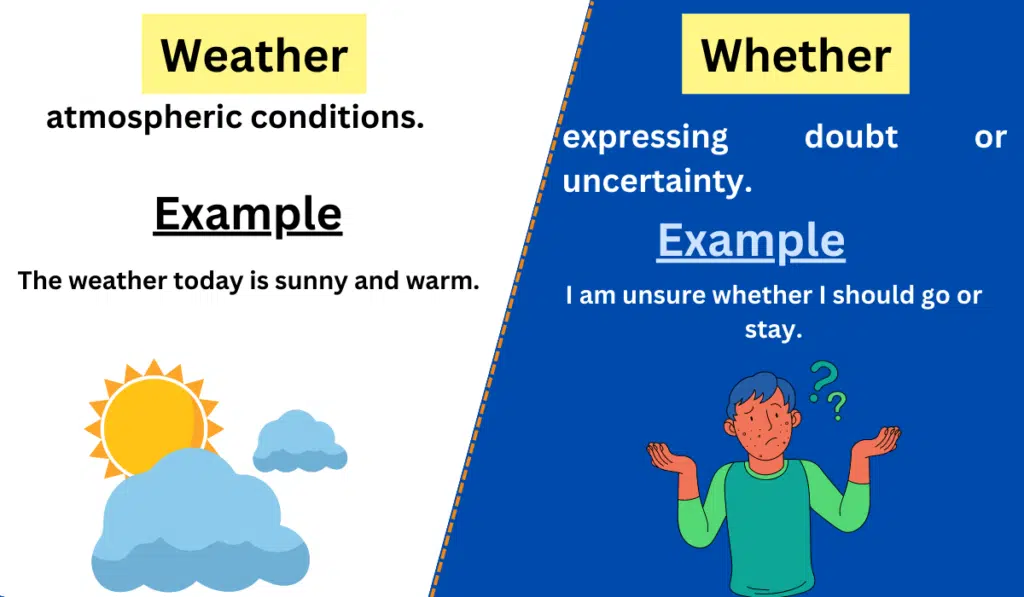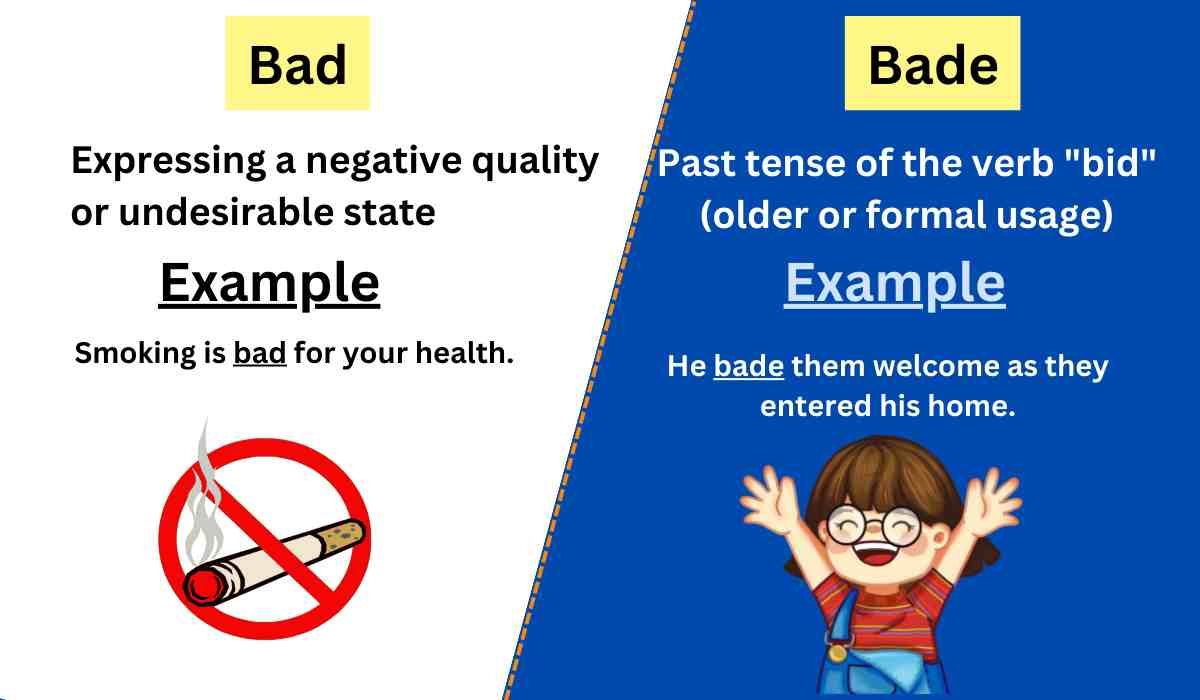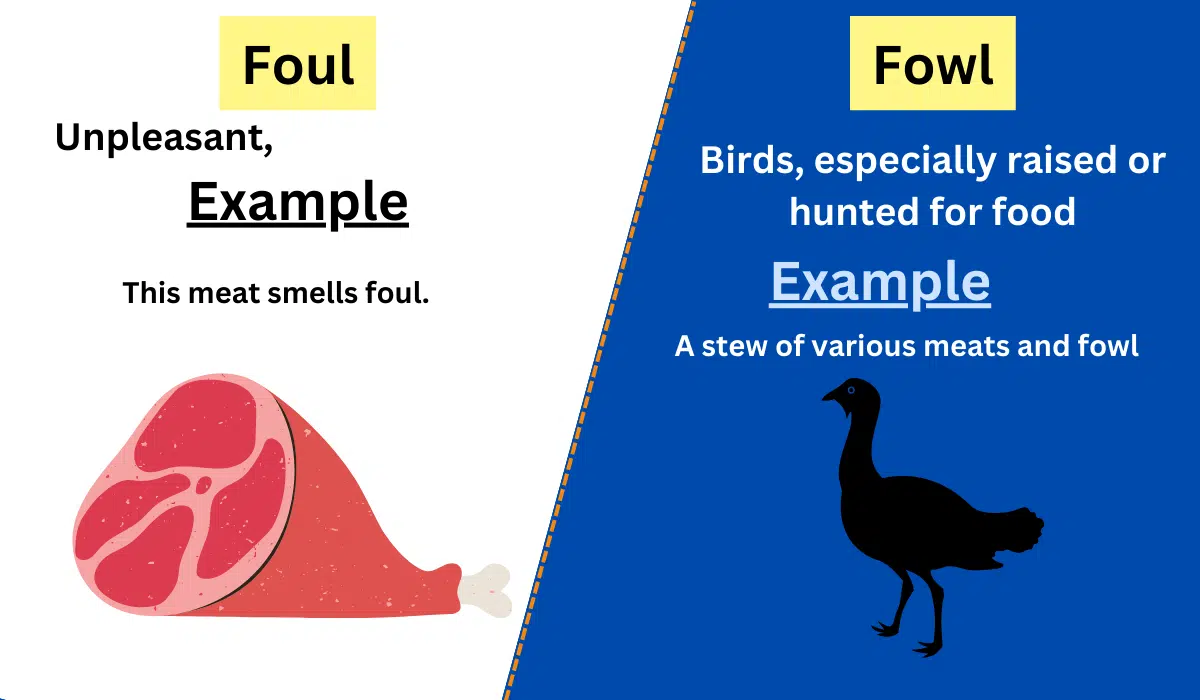Weather vs. Whether- Difference Between and Examples
In the English language, there are words that sound alike but have distinct meanings and usage. One such pair is “weather” and “whether.” Despite their similar pronunciation, these words have different definitions and serve different purposes.

This article aims to clarify the difference between “weather” and “whether,” providing clear explanations and examples to ensure their proper understanding and usage.
By grasping the nuances between these terms, individuals can communicate effectively and avoid misunderstandings.
Let’s explore the meanings and uses of “weather” and “whether” in English.
Meanings and Examples
Weather Definition
Definition: “Weather” is a noun that refers to the atmospheric conditions prevailing at a particular place and time. It encompasses elements such as temperature, precipitation, wind, humidity, and atmospheric pressure.
Examples of Weather
- The weather today is sunny and warm.
- We experienced severe weather conditions during the storm.
- He enjoys outdoor activities regardless of the weather.
Whether Definition
Definition: “Whether” is a conjunction used to introduce a choice or dilemma between two or more alternatives. It expresses doubt or uncertainty and is commonly used to introduce indirect questions or conditional statements.
Examples of Whether
- I am unsure whether I should go or stay.
- Let’s discuss whether we should take the bus or walk.
- She is contemplating whether to accept the job offer.
Difference between Weather and Whether
| Category | Weather | Whether |
| Meaning | Noun: atmospheric conditions | Conjunction: expressing doubt or uncertainty |
| Example | “The weather today is sunny and warm.” | “I am unsure whether I should go or stay.” |
| Usage | Describing atmospheric conditions | Introducing a choice or dilemma |
| Context | Meteorology, describing the climate | Decision-making, alternatives |
Usage in a Paragraph
The noun “weather” is commonly used to describe the atmospheric conditions prevailing at a particular place and time. It encompasses elements such as temperature, precipitation, wind, humidity, and atmospheric pressure.
“Weather” is often discussed in the context of meteorology, describing the climate or specific conditions experienced.
For example, mentioning the current weather as sunny and warm, referring to severe weather conditions during a storm, or expressing preferences for outdoor activities regardless of the weather are instances where the noun “weather” is employed.
On the other hand, the conjunction “whether” is used to introduce a choice or dilemma between two or more alternatives. It expresses doubt or uncertainty and is commonly utilized when discussing decision-making or presenting options.
“Whether” is often found in indirect questions or conditional statements. For instance, expressing uncertainty about a choice between going or staying, discussing the options of taking the bus or walking, or contemplating whether to accept a job offer are situations where the conjunction “whether” is utilized.
Understanding the distinction between “weather” and “whether” is crucial for effective communication in the English language.
While “weather” refers to atmospheric conditions, “whether” introduces a choice or dilemma between alternatives.
By using these terms accurately, individuals can express themselves clearly and avoid confusion in various contexts, whether discussing meteorological conditions or decision-making processes.







Leave a Reply